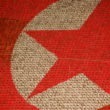To many people, Trump seems impossibly new and unique, unpredictable and outrageous, and his followers inexplicably oblivious to his dishonesty, irrationality, and incompetence. To scholars of rhetoric, it’s “Oh, yeah, this again.”
Rhetoric—what Aristotle called “the art of finding the available means of persuasion”—is an old and universal art. As soon as we communicate with an other, we are drawing on ways of saying what we mean, even if unconsciously. Studying rhetoric means studying what choices people make in those moments of trying to communicate and what happens as the consequence of those choices.
What surprises a lot of people is why Trump’s perpetual and perhaps compulsive inaccuracy and dishonesty don’t undercut his credibility with his fans. But, again, for scholars of rhetoric, it isn’t surprising—depressing, perhaps, but not surprising.
Trump uses demagoguery, and it works because we’re in a culture in which demagoguery is the normal way for people to argue.
In 1939, when a lot of politicians were still trying to work with Hitler—insisting that power had matured him, that he would not lead the world into another global war—the rhetoric scholar Kenneth Burke identified Hitler’s major rhetorical strategies. Burke analyzed Mein Kampf (1925) and argued that Hitler’s rhetorical effectiveness came from his relentless repetition of what Burke called the “bastardization of religious forms of thought.” That is, Hitler employed ways of thinking common to Western European Christianity: unifying a diverse group by identifying a common enemy, projecting and scapegoating, appealing to “inborn dignity,” claiming a symbolic rebirth, and toggling between material and spiritual ways of explaining events.
What Burke identified wasn’t just how Hitler’s rhetoric worked, but more broadly, how demagoguery works and is rewarded. Demagoguery displaces policy argumentation with praise of “us” and condemnations of “them,” and it is as prevalent now as it was in Weimar Germany.
Trump relies on that same rhetoric, and that’s why it should be no surprise that conservative Christians would support Trump. Conservative Christian Germans overwhelmingly supported Hitler, after all, and conservative Christian Americans previously supported slavery, segregation, and lynching.
As Burke noted, Hitler projected all of his, and all of Germans’, flaws onto the people of Jewish faith or ethnicity. The famous quote from Mein Kampf, that it is better to tell a big lie and stick to it, is something Hitler accuses Jews of doing, even as he is doing exactly that. That device is often called strategic misnaming—simply accusing the out-group of doing what the in-group is actually doing. Because it is so pleasurable, as Burke notes, to shift your flaws onto someone else, this profoundly dishonest strategy tends to work.
Hitler identified any person who disagreed with him as Jewish or “Jewified.” This strategy is pervasive in demagoguery. Demagoguery depends on the notion that everything can be reduced to “us” versus “them.” Therefore, the most threatening people to demagogues are any “us” who criticize the demagogue’s policies. So, as Burke noted, demagogues create a situation in which a person is either a) thoughtlessly committed to whatever the demagogue’s policy is at the moment or b) labeled a “them”—the “Jew” of the Hitler era or, in the present context, the RINO (Republican in Name Only), fake news, not a real American.
Burke also explained a paradox in what he viewed as Christian demagoguery. Christianity, he noted, makes central the notion of “inborn dignity.” This idea, that all humans are born in God and therefore born to respect and dignity, was behind many liberatory movements, such as the opposition to serfdom. Burke argued that Hitler bastardized the principle of inborn dignity by asserting that such dignity was born only to certain people. That same bastardization surfaces in the notion of Christianity being racially determined and is behind the rhetoric of Christian identity, conservative Christian defenses of slavery and segregation, and the kind of right-leaning Christian groups that support Trump.
Just as Christianity says that we are now reborn after having endured chastening and scourging, so Hitler said Germany (the true Germany) was being reborn by enduring the chastening and scourging applied to Germans by a socialist Parliament, internationalism (what we would call globalism), an incompetent government, the presence of aliens, rampant immigration, liberalism, and the stab in the back from the liberal media. And in an unsettling parallel with the present day, Germany, he said, will be great again.
In fact it’s fairly easy to look at Trump’s rhetoric and find parallels with the rhetorical strategies of demagoguery that Burke identified. Trump repeats the same points, regardless of whether they’ve been debunked; intermittently claims that faith in him is all we need; promotes economic policies that have never worked but, if you believe in the will, should work; materializes evil in Democrats (and accuses anyone who criticizes him of being a Democrat); projects his own failings onto his enemies (ranging from being beholden to foreign entities to having an insecure phone); insists on the entitlement of his in-group to everything; and promises to make America great again.
Is Trump Hitler? No. But does he use Hitler’s rhetoric? Yes. That doesn’t make Trump unique or even unusual.
What matters about Trump, from the perspective of a scholar of rhetoric, isn’t actually that he uses demagoguery. What matters is that his rise to power was fueled by a demagoguery that reflected the racist, xenophobic, misogynist, and authoritarian values of the GOP—values that previously had surfaced only in dog whistles. Trump didn’t bother with the dog whistles. He just said it. And the GOP media machine didn’t condemn him for it. They justified it, promoted it, and repeated it.
I spend a sad amount of time in anti-liberal media zones, and it’s striking to see how talking points seamlessly disseminate from Trump through his water-carrying friends at Fox and the hate media to the various Facebook pages and sub-Reddit threads in social media. Granted, once the demagoguery filters into social media, even I am puzzled as to whether I’m interacting with a bot, since there are so many—even on lefty pages. But what is clear is that Trump can count on a supportive media machine that will justify anything he does.
What happens in a culture of demagoguery is that people think in zero-sum terms about politics: whether our country ends up with a good policy matters less than ensuring the winner is “us” (our faction)—or at least that we can make “them” lose.
That is the objective of Trump’s rhetoric and the rhetoric of his loyal media. Anything that makes “them” (“libruls,” government employees, low-income recipients of support) angry is a win. This is his single most important strategy. And he can count on it being repeated. He thereby dodges policy argumentation, turns every issue into a question of belief in him, scapegoats relentlessly, projects his failures onto the out-group (anyone who disagrees with him is a librul), openly invokes racism, and has a media that will support him.
Trump isn’t Hitler, but he has put the rhetorical strategies of modern history’s most galvanizing and villainous demagogue to effective use.
Patricia Roberts-Miller is a professor of Rhetoric and Writing and director of the University Writing Center at the University of Texas at Austin. Her most recent book is Demagoguery and Democracy (The Experiment, 2017).







Lets’ remember that the harmful behaviors are “symptoms”/expressions of underlying physiological processes in the brain, caused by genetic processes, inherited from eons of human lives. What is the, cause and effect. Leaders can only “play” to the instinctive of the brains of individuals. Our human/hominid/primate/mammal/etc physiology determines all this. Blame our Stone Age brains.